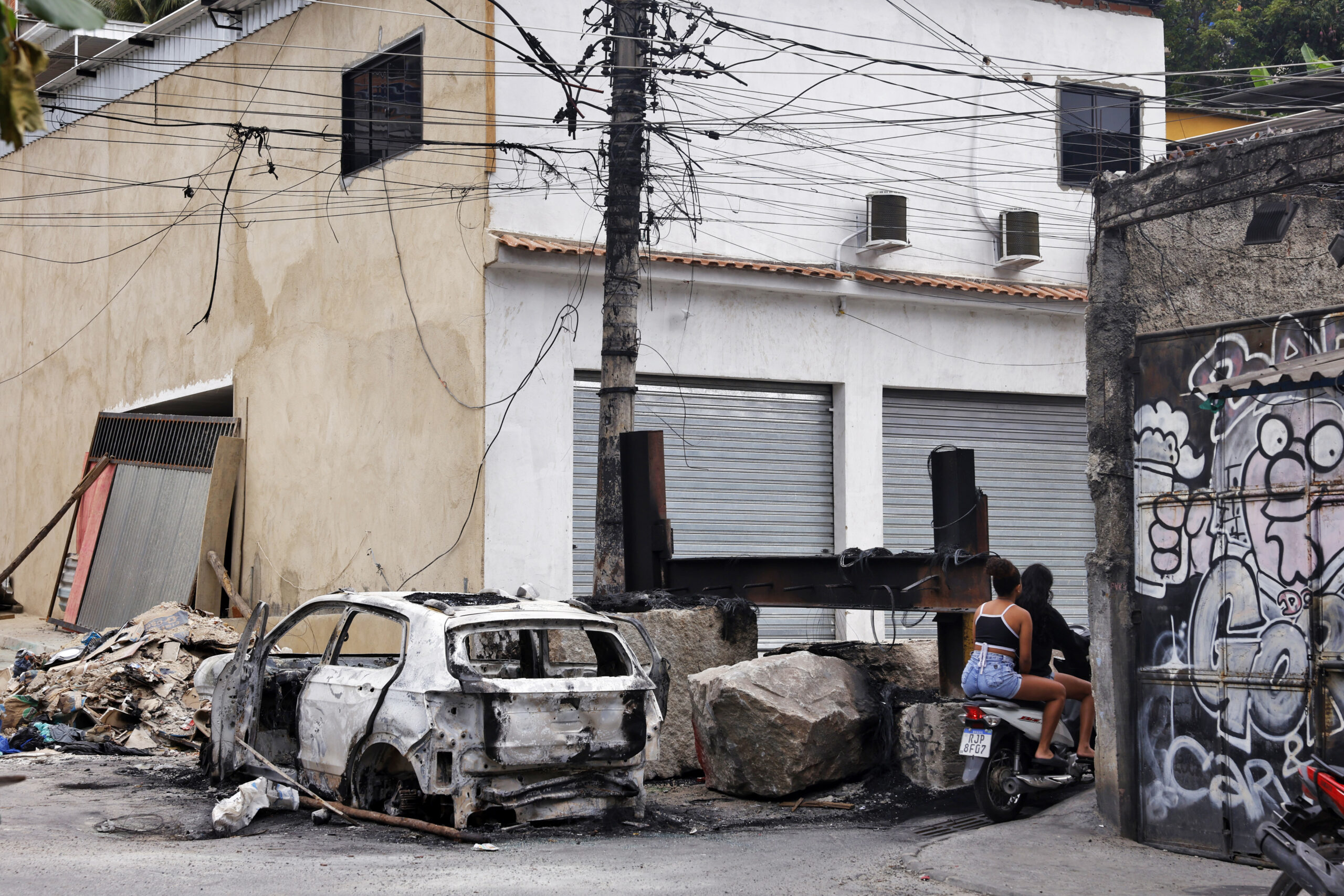The following article, authored by H360 legal consultant Larissa de Melo Itri, was originally published in the Folha de S.Paulo newspaper on October 31st.
With ten days until the start of the 30th Conference of the Parties (COP30) of the United Nations Framework Convention on Climate Change (UNFCCC), the governor of the state of Rio de Janeiro, Cláudio Castro, promoted the largest massacre ever seen in this country.
After 24 hours from the start of the “operation,” we counted at least 121 dead. Some shot with rifles, others with hands and feet tied and stab wounds. This is not war, it is genocide.
In the same month that the campaign on the Historical Reparation Fund for Black people is launched, photos from Penha square display dozens of bodies lined up, almost all of them Black.
While Brazil spends billions to host authorities from various countries for the conference in Belém, other billions are spent to strengthen public security forces in Rio de Janeiro. And here arises the question: what does the war on drugs have to do with the climate issue?
First of all, it is necessary to distinguish concepts that are deliberately conflated by official discourse: “war on drugs” is not synonymous with “combating organized crime,” nor is it confused with “trafficking.” The war on drugs is a State policy that criminalizes substances and, with them, bodies and territories. Trafficking is a legal, economic and social phenomenon that arises precisely from prohibition—it exists because the war exists. And combating organized crime, in turn, should target the power structures and money laundering that infiltrate the legal mechanisms of the economy, politics and public institutions.
What they call the “war on drugs” is, in fact, a war against people. An extermination policy that operates in the same mechanisms as the climate crisis: the logic that there are bodies, territories and lives that can be sacrificed in the name of order and control. In favelas and peripheries, where the State arrives through armored vehicles and not through sanitation, necropolitics combines with environmental degradation—the helicopter that flies overhead also spreads pollution; open sewage coexists with spilled blood; the lack of public policies condemns entire populations to hunger and contamination.
Prohibition doesn’t just kill—it destroys. It fuels illegal markets that clear forests, poison rivers, exploit vulnerable communities, and feed the corruption that undermines environmental governance. The same State that militarizes the favelas and kills young Black men is the one that enables the destruction of vital ecosystems and the encroachment of mining operations on indigenous and quilombola territories. It’s the same project of death, merely with different targets.
And here we cannot forget that this logic of “combating organized crime” requires State accountability: the “parallel State,” as they call it, only exists and sustains itself because the “nation-State” daily fails to promote basic rights, according to our Citizens’ Constitution, of historically vulnerable populations—and historically vulnerable by political choice of this State.
Speaking of climate justice is, therefore, speaking of ending the war on drugs. There is no possible environmental justice in a country that legitimizes the mass murder of its own population under the pretext of combating substances. Climate justice is also built on the relationship between human beings, and we fail when we accept that some must die so that others can live with privileges.
No war has ever saved a single life. What exists is the consolidation of a control model that reproduces inequality, racism and social and ecological destruction in this country. The Penha and Complexo do Alemão massacre, just days before COP30, exposes to the world the abyss between green discourse and the blood-red reality of a country that still hasn’t understood that climate and life are inseparable.
Larissa de Melo Itri
Lawyer and researcher, legal consultant at Instituto Humanitas360; master’s student in criminology and penitentiary law at the University of Barcelona
(Photo credis: Tânia Rêgo/Agência Brasil)





